Mike Johnston on the future of drum education
The online drum tutor and YouTube sensation's thoughts and philosophies on teaching drums
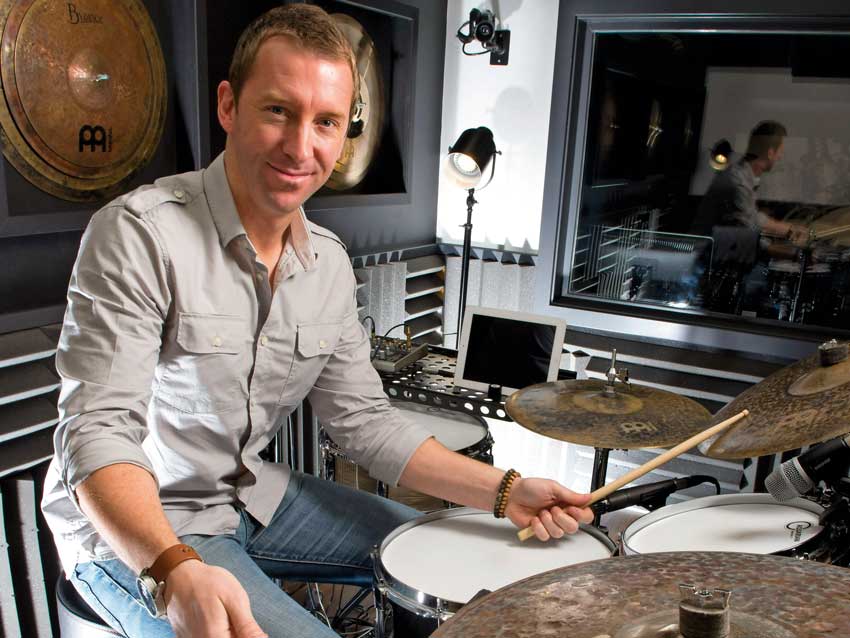
Mike Johnston
Mike’s passion for drums and education started at an early age and he pursued the usual path of playing in bands, working and teaching at the local music store and taking private lessons. This led to some success in the rock world with a gold record, world tours and the opportunity to work with other artists. Although he was “making it,” something just didn’t feel right.
One of his tutors pointed out how passionate Mike was when talking about teaching and education and with that insight, he followed his intuition and transformed himself into drum teacher for the modern age, beginning by posting personal videos he made for his students on the then-fledgling internet site, YouTube.
Mike also has an old-school, personal approach and acknowledges the value of enhancing the new teaching mediums with a touch of tradition and personal one-on-one tutoring, something he strives for with his site, mikeslessons.com.
Here he shares his philosophy on teaching and his thoughts on the future of drum education.

Mike's teaching philosophy
“If it’s private lessons, I make sure that every student is their own adventure and I have my own plan for that person. When I would go to my lesson as a kid, I would hear something being played by whoever was before me. Then I’d go into the room and I would have to do the same thing. I thought, ‘That dude before me was 37 and I’m six. Why are we working on the same material?’
“I wanted to do the opposite. When I was doing more private lessons, I’d have an eight-year-old and then right after that, a 52-year-old. You have to adjust. You can’t teach the 52-year-old what you taught the eight-year-old. Everything has to be applicable. Every time I meet a student, the first thing I ask is, ‘If I was a drum genie and could grant your wish, what would it be?’ Yes, we have to learn paradiddles. But there’s no reason we can’t learn paradiddles along to Animals As Leaders instead of a metronome. I want you to feel like you know that I care about your future. If it doesn’t relate to your dreams, then I don’t want to teach it to you.
“I’ll never be mad at you, never yell at you, never even be upset with you, but, whatever effort you bring, I will equal that with my teaching. So if you don’t practise and you don’t care, it’s no big deal to me. I’m totally okay with it. We can just jam during your whole lesson. But, if you really care, then I’m going to go home and think about your future, your next lesson. I’m going to be obsessed with what’s next for you.”
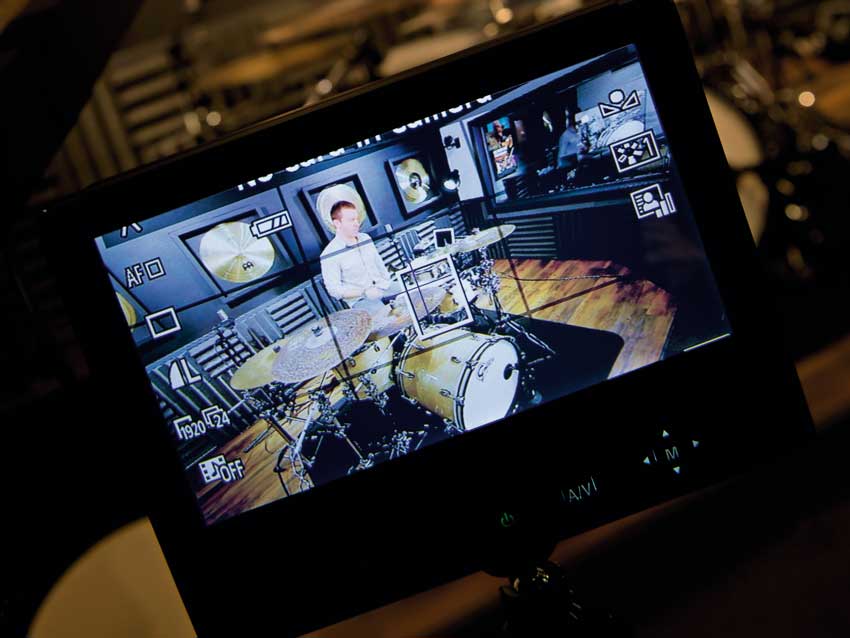
Pioneering video drum tuition with mikeslessons.com
“I’d love to take more credit than I can, but Steve Jobs was the one that did it, because really, the first Mike’s Lessons was a complete copy of iTunes. I was getting used to getting my music digitally through iTunes and thought, ‘If he [Jobs] can deliver songs for 99 cents, why can’t I deliver drum lessons for 99 cents?’
“Media is media whether it’s audio or video. That’s where I started. I thought, ‘I’m going to make iTunes for drummers.’ There was no concept of live streaming. I was making YouTube content, that had just started. I wasn’t making that for YouTube, I was making it for private students. When I’d leave town for a tour, I’d make a video and put it on YouTube and give them the link. My first YouTube videos were not for YouTube, they were for students! Then, they exploded. I was like, ‘Why would 60,000 people want to watch that?’ I just taught a paradiddle variation. That was a light bulb moment. Then, I thought, ‘If people do want this, then maybe I could sell it for 99 cents.’
“My first videos were so tiny they fit on the iPod Nano. It was like a thumbnail video. Nobody had the bandwidth to even download content. I saw what iTunes was doing and wanted to replicate that, and wanted to do it for drummers.”
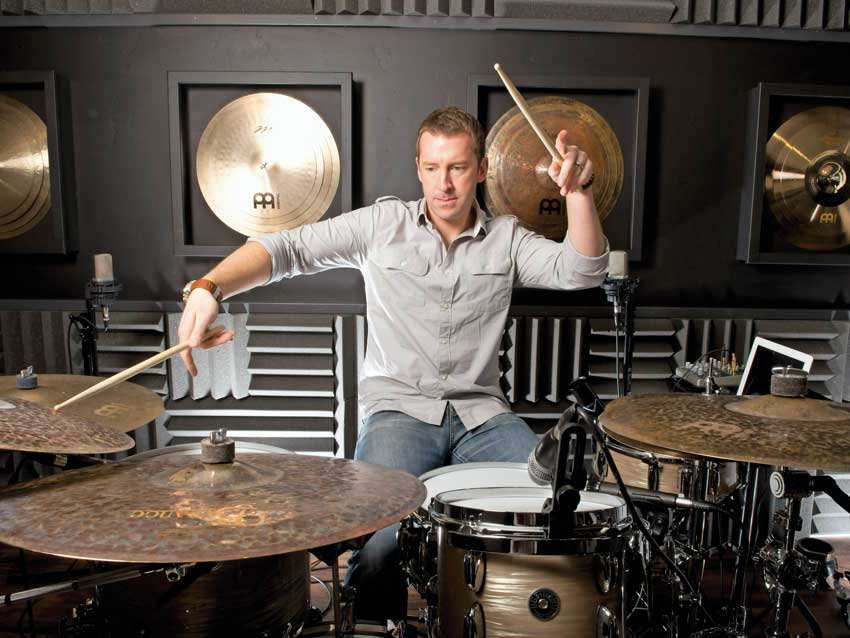
Breaking it down
“I watched my drum gods and I remember which ones were tangible and which ones were not. Because I’m not natural at the drums, the way I teach is the way that I have to learn, which is a very ‘break it down’ philosophy.
"I have to write it out a bunch of different ways to make my brain understand it. But, when that process is done, I own it. I can teach it to somebody. I can break it down for them if they’re not understanding it. I can play it slow, fast, I can swing it, I can play it straight. I try to make a big difference between, ‘Can I do something, or do I own it?’ Own it means, all styles, tempos, genres and volumes.”
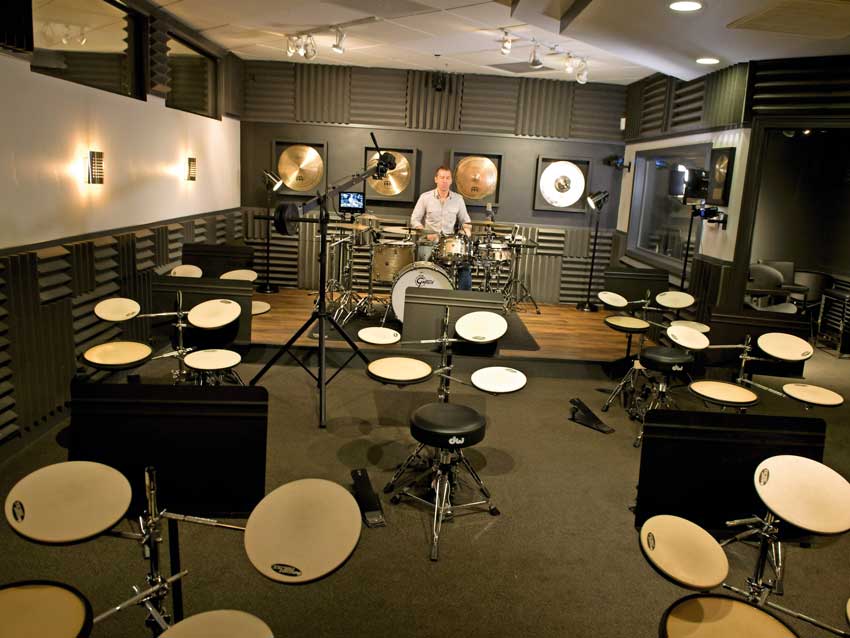
Making it work
“The real key is teaching topics that apply to everyone and making that lens a person. When I look in the camera, I don’t see a camera, I see a person sitting on the other end on their computer working really hard to get better. That’s who I’m talking to.
“I can’t teach stylistically specific things on YouTube. I can on mikeslessons.com because you’ve chosen to learn that subject. I think of something like the paradiddle. No matter what, you have to learn it. Now, you can play it between a stacker and a loud snare drum and make it a metal thing. You can swing it and make it a jazz thing. But, the paradiddle is non negotiable, you have to learn it. So, I try to think, if the paradiddle is vegetables, how do I turn it into dessert? How do I make people think, ‘Ooh, I would totally eat that!’ Now that you’ve seen the light at the end of the tunnel, let’s go back to our vegetables. If you just keep chewing on them, they may taste like chocolate cake.
“If you watch any of my YouTube videos, they always start with the end product. Our main two services on mikeslessons.com are prerecorded content and the live lessons. Those are live broadcasted Monday, Tuesday and Wednesday. I know the career I have is because of my YouTube fan-base eventually taking a chance on my paid service. I make no bones about it. I believe you have to pay for education to value education and I believe teachers have to charge for education to value their teaching.”
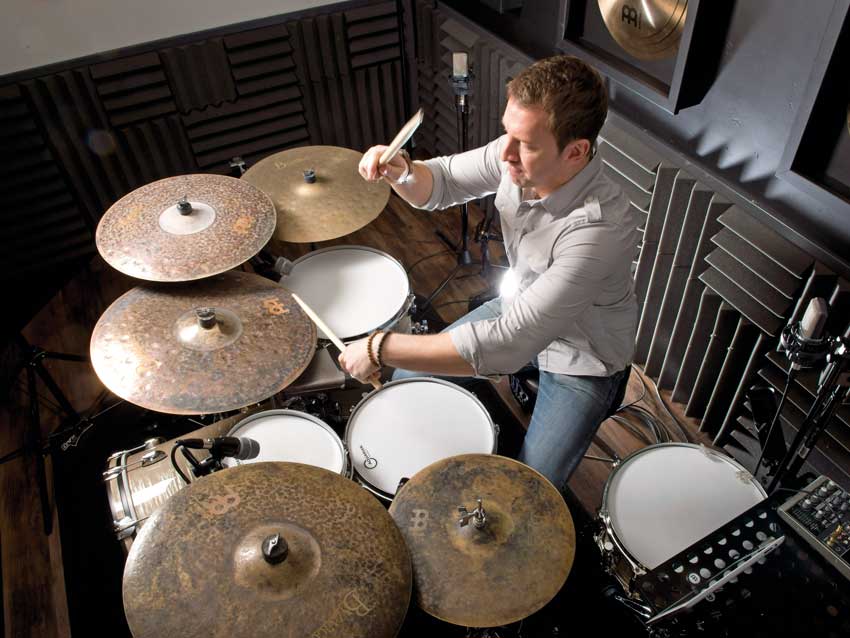
The most important thing learning drums…
“I think the first cornerstone would be patience. I watch so many people quit because they didn’t understand how long term this instrument is. This instrument is literally golf. You see 60 to 70-year-old men playing golf and they’re horrible, and they play everyday. This is a long term thing. It’s about small, little victories.
"I think the biggest cornerstone would be to judge yourself against yourself, not against anyone else. People who judge themselves against me, the first thing I ask is, ‘What was your life like?’ They say, ‘I got a drumset when I was 16.’ Let’s stop there. I got a drumset when I was six. That’s different. Did your parents pay for lessons? ‘No.’ Well, mine did. They totally supported me. I had a drum room that we built in the garage so I could play at all hours of the night and not bother anybody. How can you compare yourself to me when we didn’t have the same life?
“I was so lucky. I’m not natural at this instrument, but I had every opportunity to become great, which I’m still getting. If you know specifically that you were at 93bpm on double paradiddles, don’t judge that against Virgil Donati. That’s going to be so disheartening. Judge yourself at 95 and 96. If you’re 1 percent better every single day, then in 100 days, you’ll be twice as good as you were. It’s not that hard, but it’s very hard when you pull up a video of Virgil, or Dave Weckl or Thomas Lang, and you’ve only been playing for four years, you think, ‘I’ll never be that good.’ Go back in time and see them when they’ve only been playing four years. Maybe that would be more relative.”
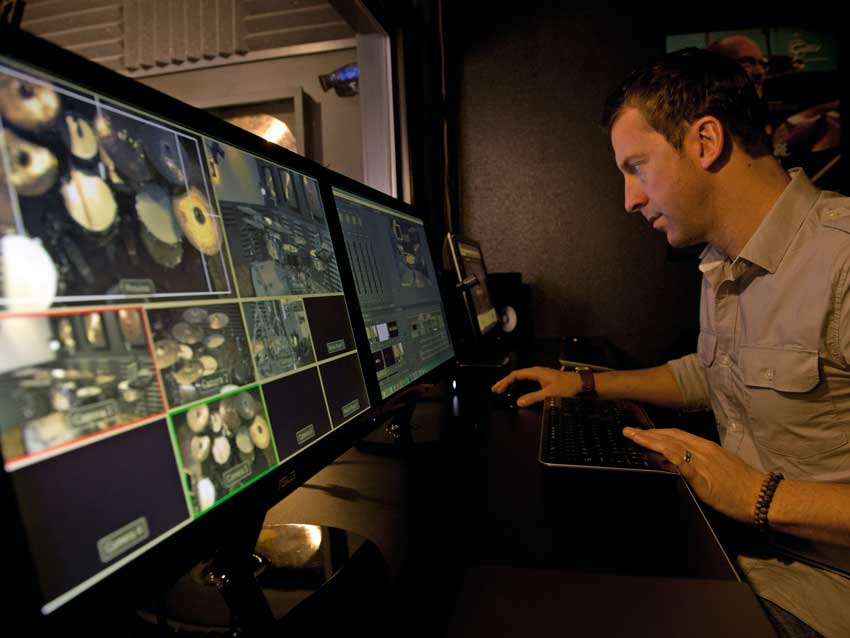
Information overload!
“The scariest thing right now is the overload of information. Even on mikeslessons.com we havea huge flaw; we don’t help you get better. We’re like an information supermarket. Come in, buy what you want. That’s bad. I want to fix that.
"I want to say, ‘Are you interested in rudiments? Then let me walk you through this plan. Yes, there’s 40 international rudiments that we’re going to work on. But, even in P.A.S. [Percussive Arts Society], they’re not in order correctly. They’re in order by groupings. You have your flam rudiments, your paradiddle rudiments. Well, I can’t play a pataflafla if I don’t already know how to play single strokes and flams. I want mikeslessons to take you through the proper course. I want to turn it into courses instead of just, ‘Go ahead and shop.’ We’re never going to take that away though, because some people really do know what they want.”
Right now, it’s more like an encyclopedia. Here they are alphabetically. We have meters that say advanced, intermediate and beginner, but still. Someone needs to be helped. I really want to do that. We go really far out of our way to make sure we’re not that ‘Sham-Wow’ late-night TV commercial. We never shove anything in your face. We want the world to know this exists. If you want it, come and get it. If not, no big deal.”
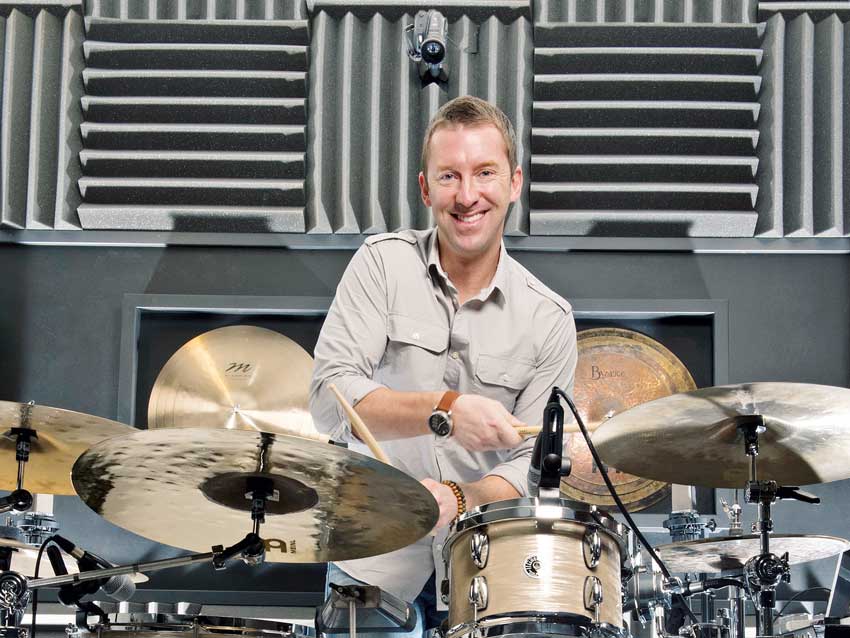
Take it to the next level!
“The first thing [to do to take your drumming to the next level] would be a vision of what I call a ‘Desired Result’ technique. Do you even know your desired result? Because sometimes people really don’t.
"They’re like, ‘Yeah man, I’m trying to get faster hands.’ I would ask, ‘What for?’ If you were playing ballads with John Mayer, you wouldn’t need faster hands, so you should know what the desired result is. If you said, ‘I really like this band, and I physically can’t play the songs,’ that’s a great reason to have faster hands. Why are you trying to build this specific skill set? Then, the next thing is, is it a skill set? What are you trying to build? If it’s improvising, that can be done with your hands and knees sitting on a park bench. You don’t even need a kit for that. It’s your brain being able to get that language out of you naturally and just improvise.
“Who’s helping you get there? There has to be something inspirational to measure yourself against. [Instruction] could come from video lessons with me or somebody else. It could come from a book. When I watch Jojo Mayer play a specific groove, that becomes the measuring stick. I can keep going back to that groove. Do I have it? Did I get it? I think that’s really important. That’s where video-taping comes in. I video-tape myself every day for work, but I video-tape myself a lot that nobody ever gets to see because it’s for me. I have a reference point and tomorrow night, it will be better that what it was today.”

Why there's still a need for one-on-one
“I never talk numbers, but I know I could triple my cost. It’s only $20 a month. I could triple my cost and lose very few students. But, what would happen, I would make a bunch of money, but those students then wouldn’t have enough money leftover for private drum instruction.
"The reason my price is $20 a month is so that you can afford private drum instruction also. You can take my material to your teacher and say, ‘Hey, I’m working on this thing from Mike’s site, can you be in the room and stare at my limbs and listen to my dynamics? Even if you make a video for me, depending on your recording gear, maybe I’m not hearing your dynamics properly. If you’re using your phone and it’s clipping the whole time, I can’t tell much. Private drum instruction will always be needed. If you notice, mikeslessons is not a home for beginners. We don’t teach anyone how to play drums. Once you can play drums, we teach you how to improve.”
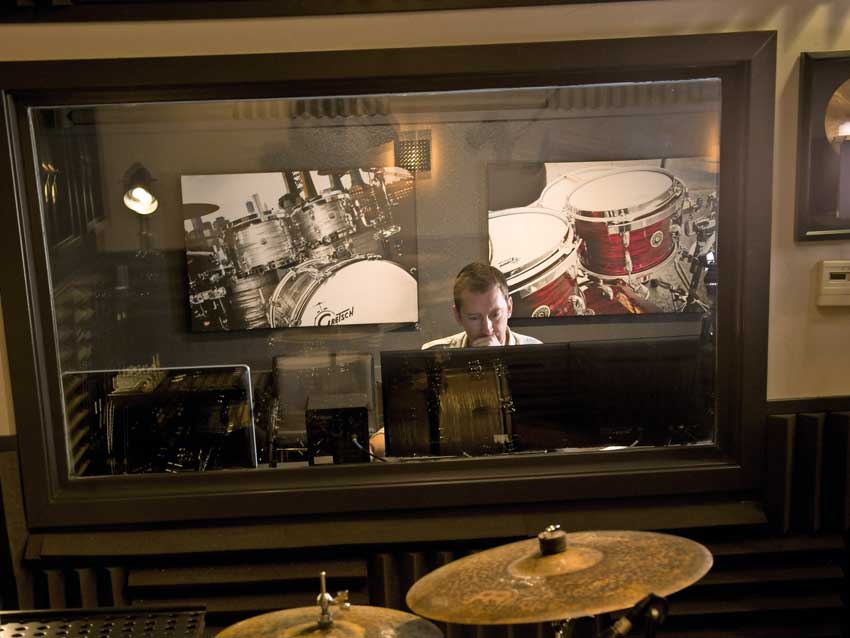
Anyone can learn to play drums
“I am the proof! I am the one-note-at-a-time guy. If you show me anything right now, I’ll tell you to slow it down and I’ll write it out, one note at a time. I definitely think that some people are natural at it. That’s totally different. I think anyone can learn. I’m the proof of one end of the spectrum. Then there’s the other end of the spectrum, the Thomas Langs and Virgil Donatis, where if you do have a natural knack for it, it can be taken to some god-like places.”
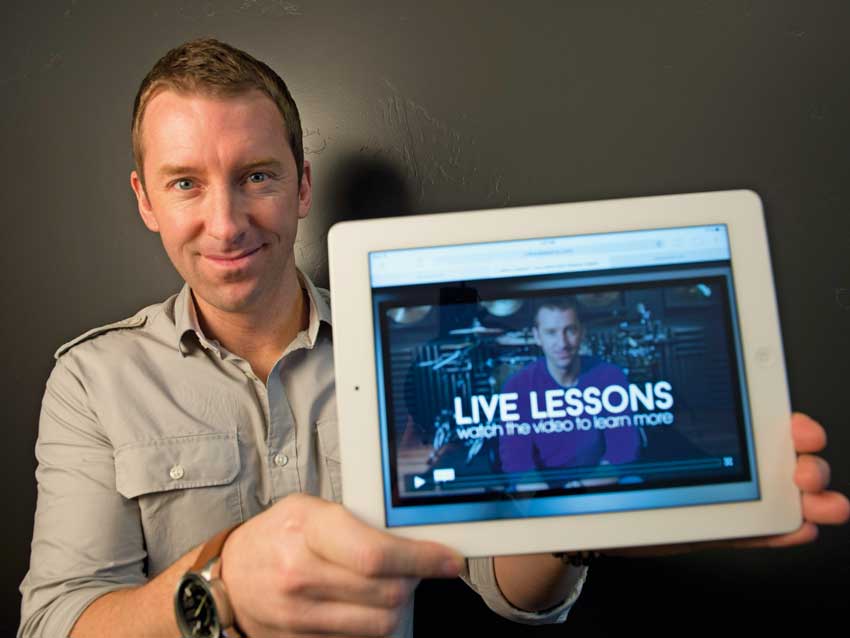
Fancy a drum lesson with Mike?
Mike Johnston presents an exclusive video drum lesson, just for you, in which he teaches you how to expand your freedom within drum grooves! You can find the lesson here!
And you can read the full interview with Mike in the May issue of Rhythm, which you can still get hold of by following this link!